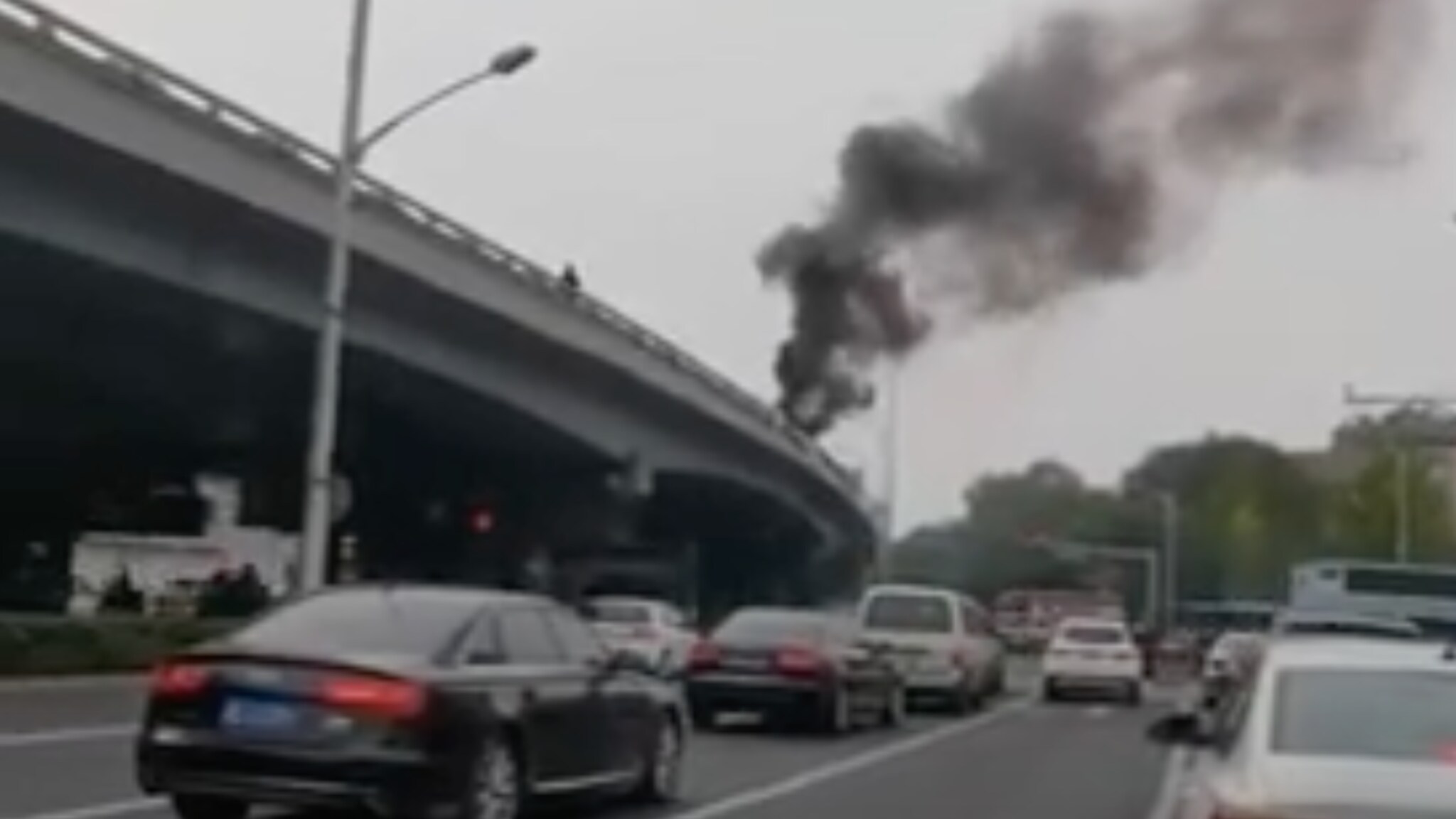“Down with traitor Xi Jinping” and “Freedom, no shutdowns” were written in red letters on white banners installed on the Sitong Bridge. Thick plumes of smoke also rose from the bridge, possibly as a result of the fires. Protests against the government are not prohibited, but the local police must give permission in advance. This never happens in practice.
Pictures circulated on social media show force majeure of the police arresting a person on the bridge. After that, the banners were quickly removed from the bridge, with the crowd watching from below, photographing and taking pictures. This video ended on YouTube:
The bridge is located in a neighborhood with several prestigious universities, which led to rumors about who hung the banners. The names of prominent academics have been mentioned on the Internet, but this has not yet been confirmed.
The control machine is interfering
On the Chinese internet, the censorship machine runs overtime, even today. When you search for the bridge name on social media sites like Weibo and WeChat, you won’t get results. Even comments that appeared to support the protest were promptly erased from the web. Banned or deleted WeChat and Weibo accounts are frequently reported on Twitter.
What was on the signs?
Translated from Chinese:
We want food, not coronavirus tests. We want elections, not rulers.
We want dignity, not lies. Be a citizen, not a slave.
Interrupt your ranks. Interrupt your work. Expel the treacherous tyrant Xi Jinping.
Eric Liu of China Digital Times, a platform that monitors the Chinese internet, recalls previous censorship measures. “The severity of this round of censorship is equal, if not worse, than that of Bing Shuai.” The Chinese tennis star disappeared from public view earlier this year after she accused a high-ranking party member of sexual assault.
The party convention is about to start
The ruling Communist Party can use protest, even if it’s small, badly now. Criticisms of the “no virus policy” of forced closures and quarantines are regularly circulating. As the five-year party congress kicks off on Sunday, Xi is expected to receive his third term as leader.
So Beijing is strictly protected. Travel rules to the city are strict and residents must also get tested for coronavirus every three days.
According to Chinese reporter Roland Smead, control of the capital will increase in the coming days. “The authorities were already on high alert for the unrest in the run-up to the party congress, but it’s just now. Beijing will do everything in its power to make the event go unimpeded.”







